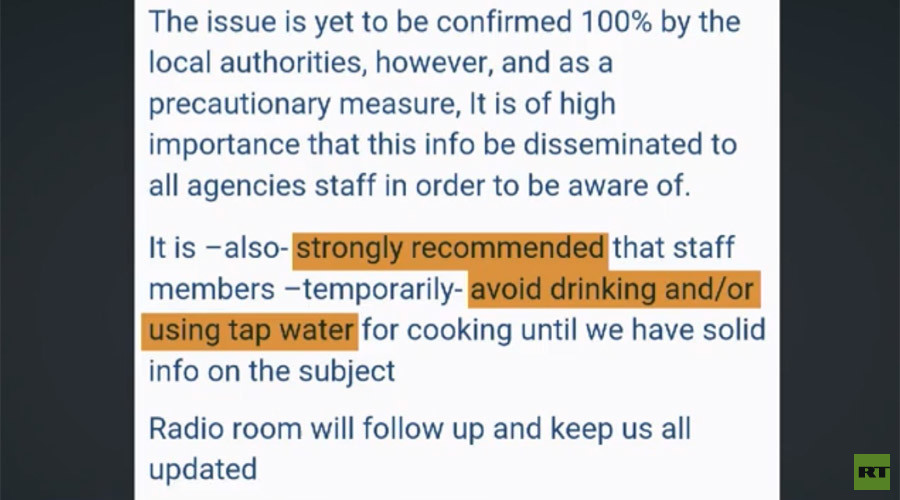
The Syrian capital Damascus has been without water for five days.
Authorities have accused “terrorist groups” of deliberately poisoning water resources and the government cut off water to Damascus on Friday after concerns that rebel groups west of the city had poisoned wells and pipes.

BYPASS THE CENSORS
Sign up to get unfiltered news delivered straight to your inbox.
You can unsubscribe any time. By subscribing you agree to our Terms of Use
Latest Video
While media in the West has blamed the Syrian government for disrupting the water supply, there is evidence that rebels are behind the crisis, with renewed video threats.
RT’s Lizzie Phelan reports.
Damascus continues to be considered the safest place in Syria. But it has an Achilles heel, and that’s the water supply – currently under rebel control.
Last week, the government accused the rebels of contaminating the reservoir at Ein al Fija spring’s water pumping station, which serves about 65 percent of Damascus, with diesel and other poisons.
The government managed to shut off the supply before it could reach the capital, but a leaked UN memo shows the extent of the fear that started to grip the people.

RT’s Lizzie Phelan spoke to Damascus locals who transport water to residents in cisterns. They are all concerned, and blame “the terrorists” for cutting off the supply.
Phelan filmed people with jerrycans obtaining water from underground reserves. The people are lucky to at least have them, along with the free distribution of water by the Water Authority. Store prices are exorbitant
Damascenes say the government’s help has been a lifeline.
“We had no water for five days. Now we found this place, and the government is helping us… things have become easier,” one man said.
The crisis reportedly hit when the reserve was allegedly shelled by government forces – at least that’s what the Western media has said, citing rebel sources.
The rebels, however, have used water before to pressure the government. They have threatened to do it in a recent video – this time by blowing up a tunnel underneath, and physically depriving residents of water.


